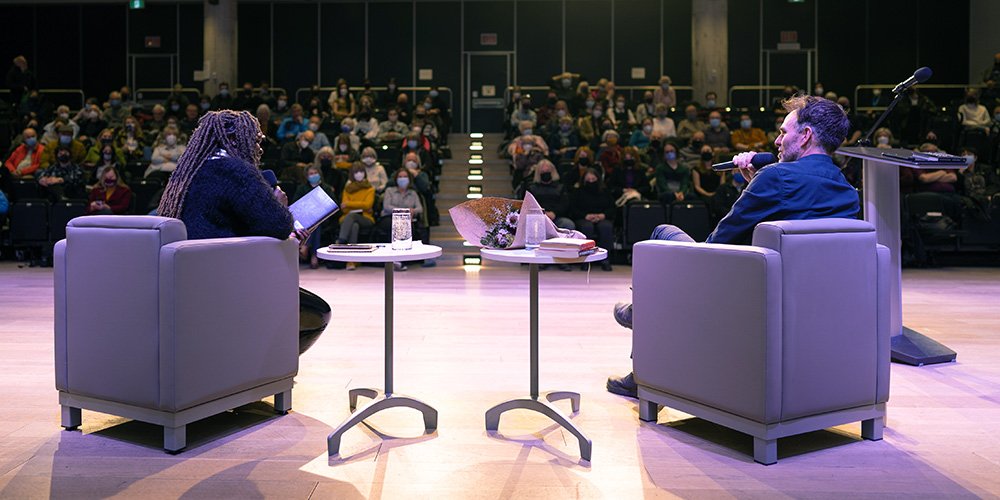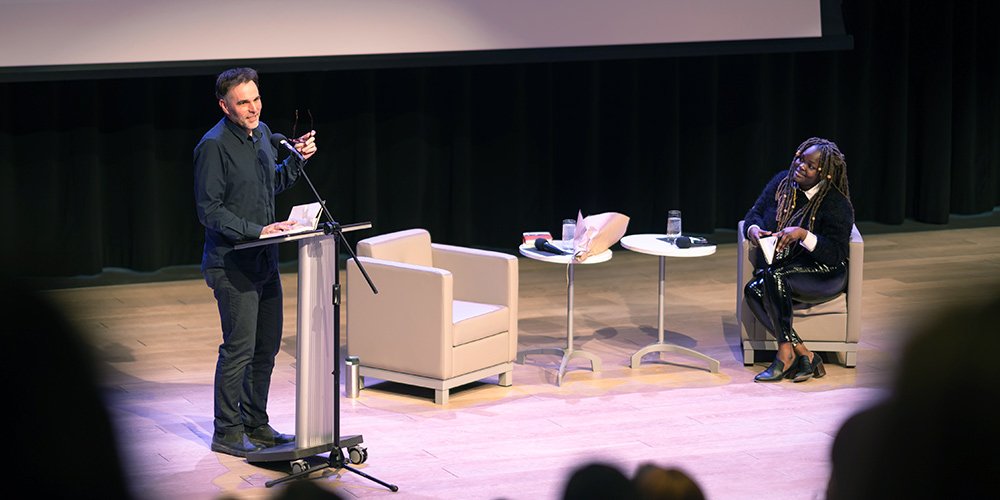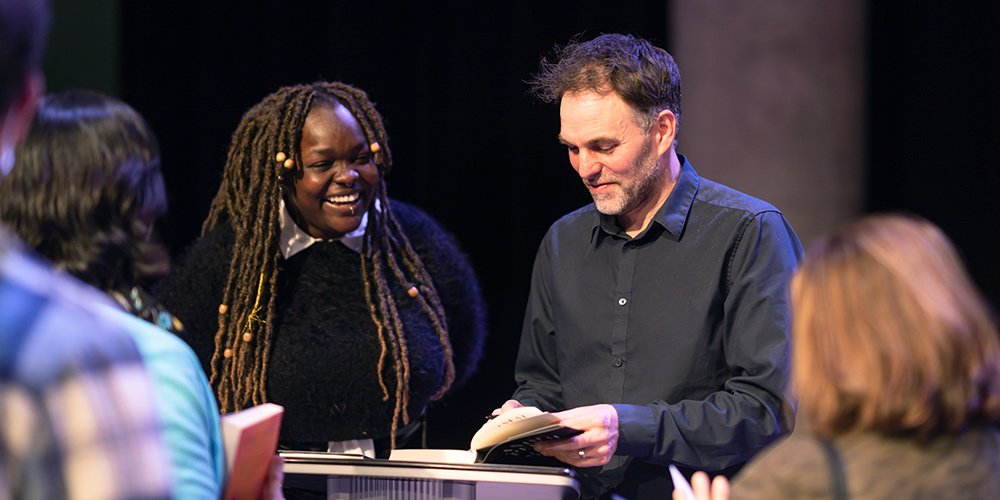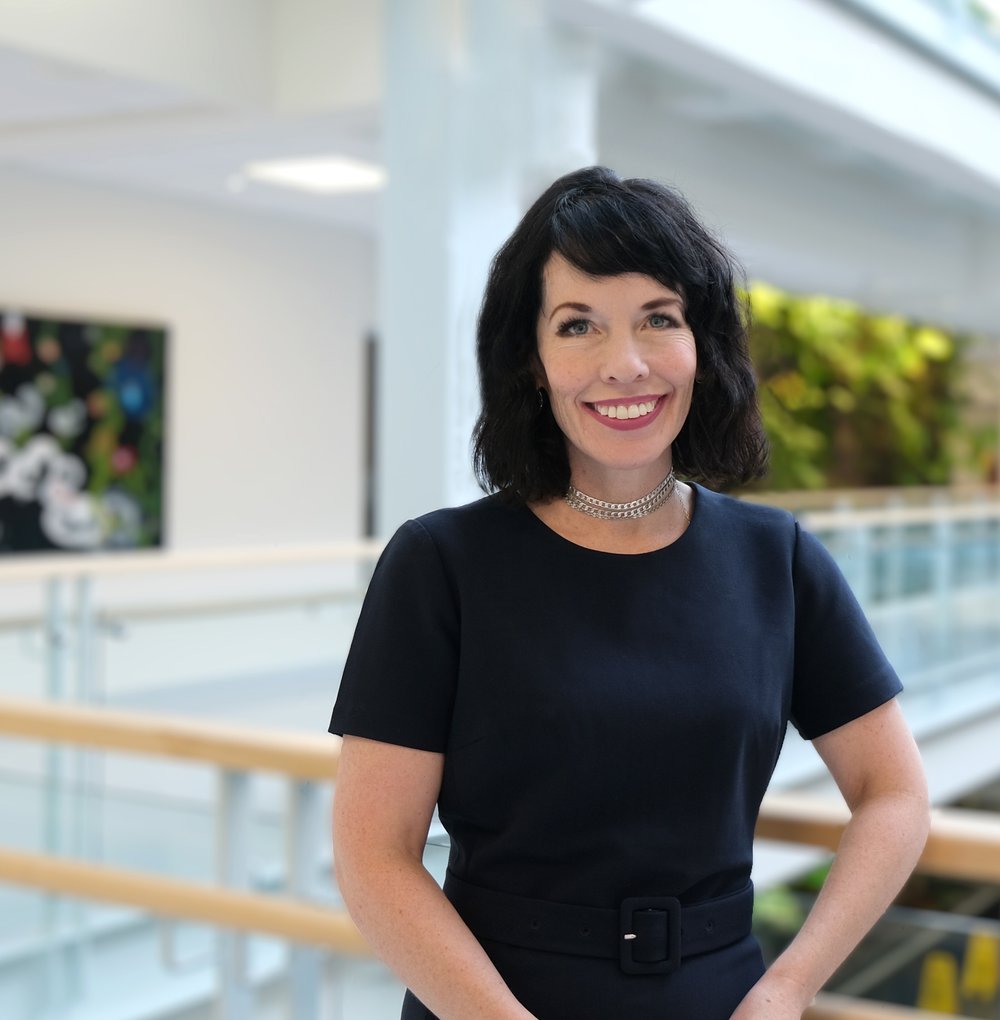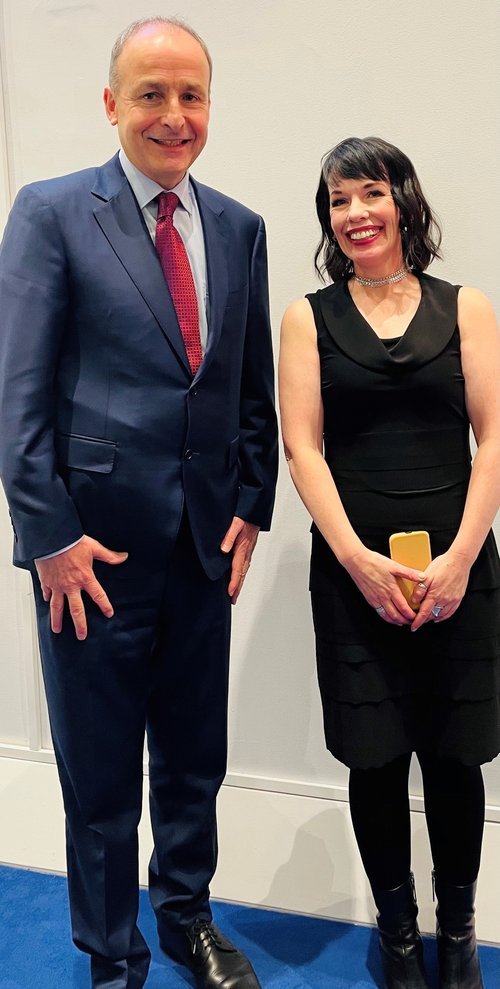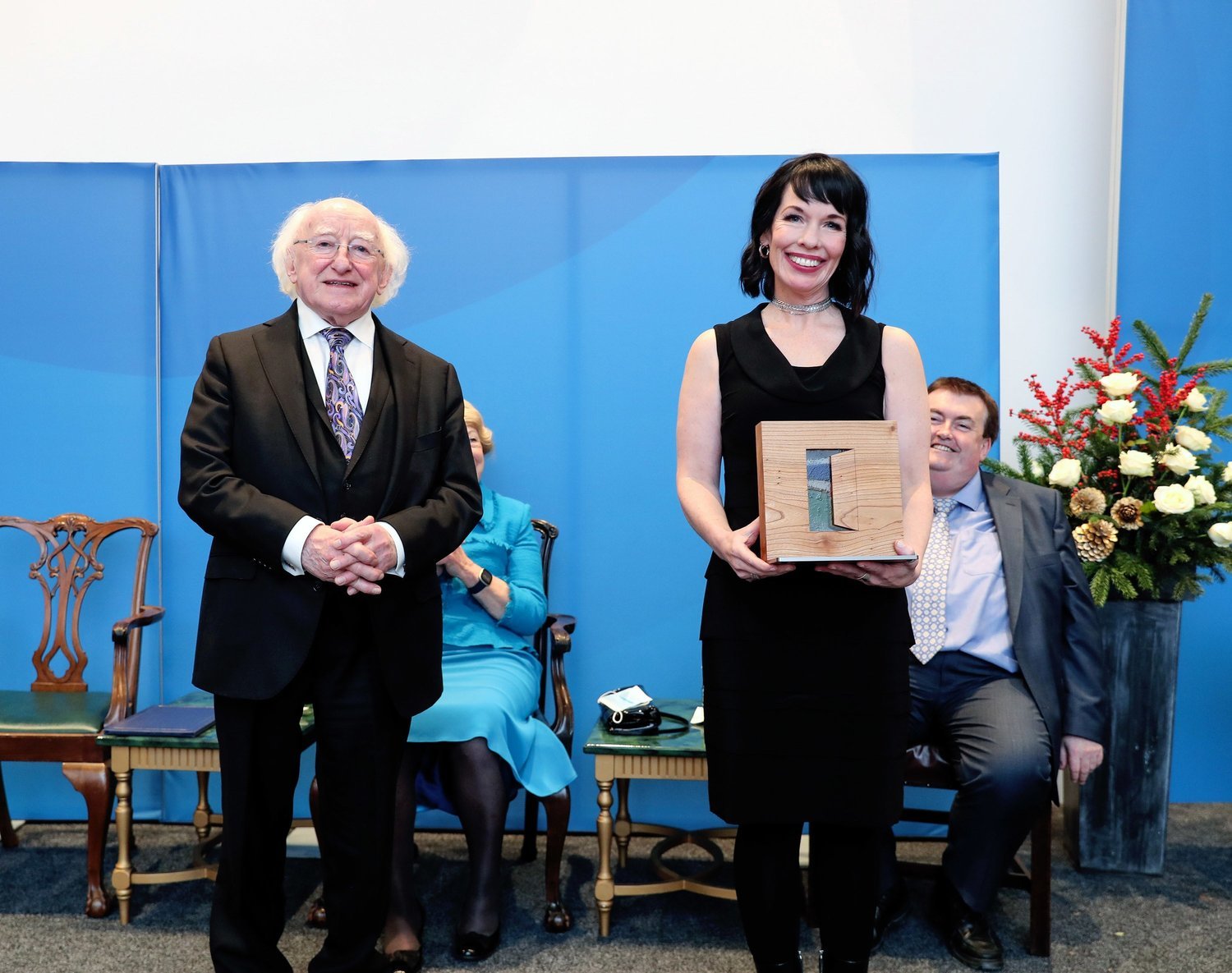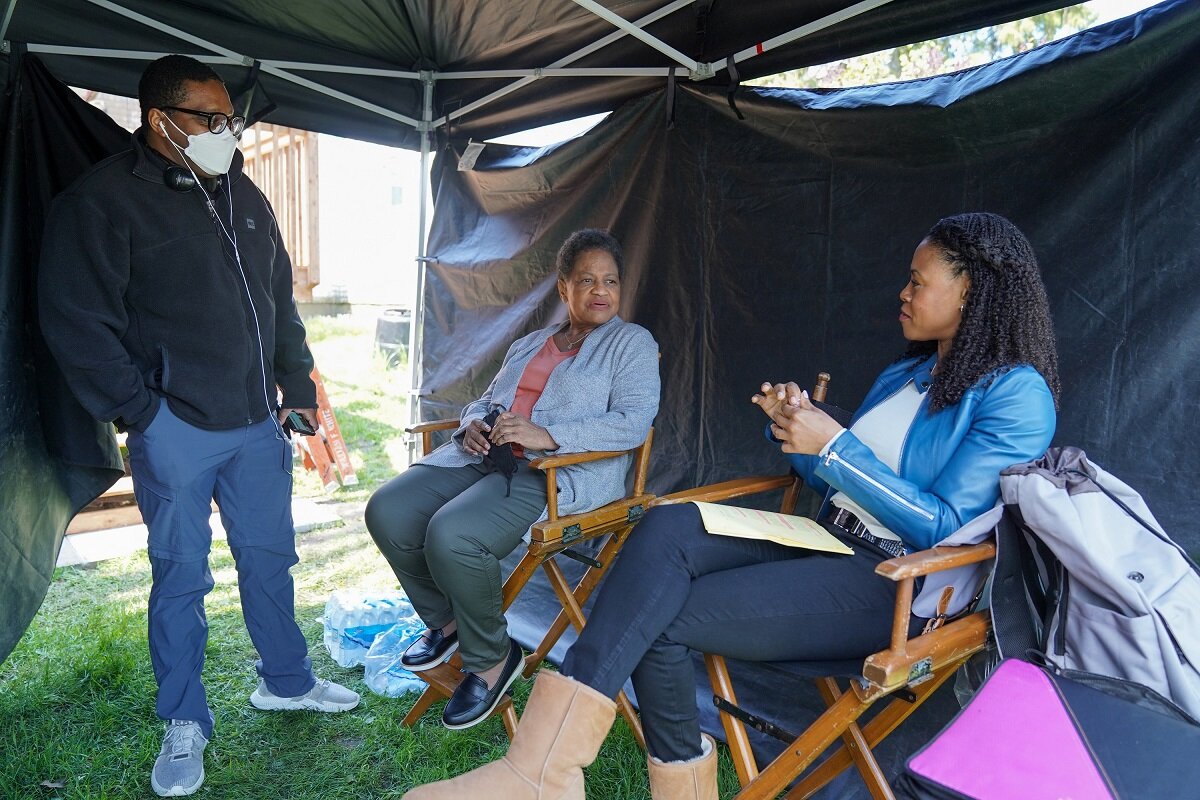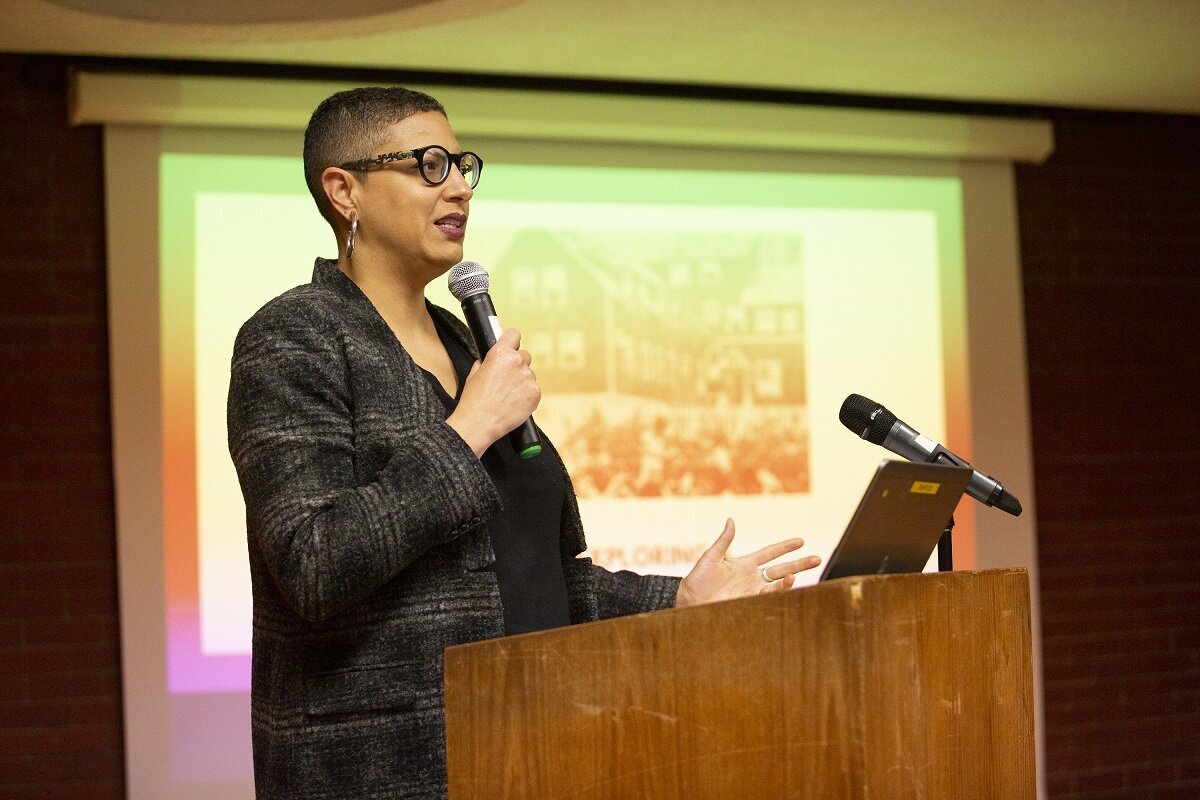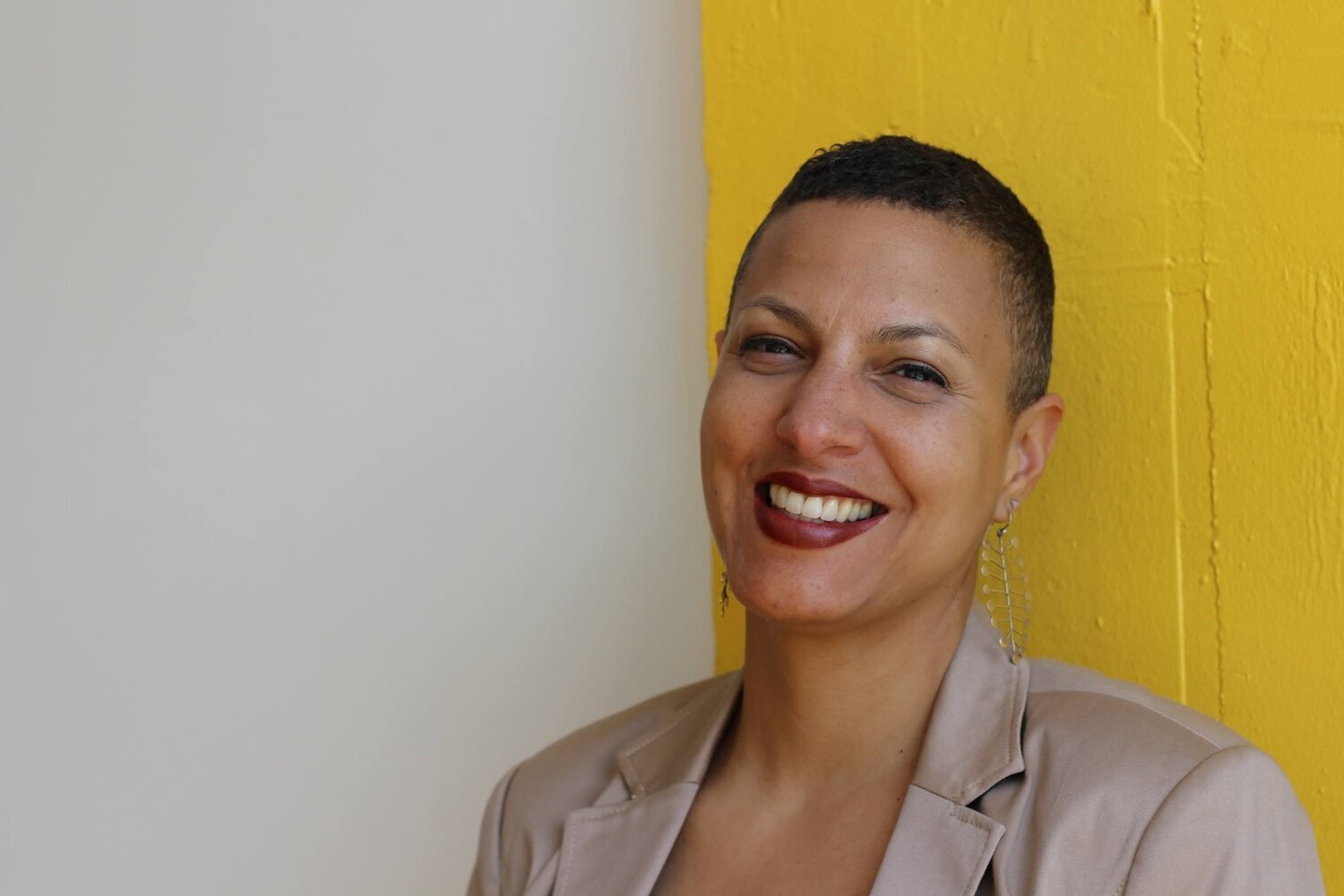Elora (standing) and Olwyn Gehue
Simultaneous studies in Arts and Commerce added up to the perfect combination for Elora Gehue of Halifax—and for her mother, Olwyn Terris-Gehue. The pair were seated side by side during their graduation ceremony this week at Saint Mary’s University.
“I’m not really sure how she felt about it when we first started to attend classes together but it definitely got better,” Terris-Gehue recalls with a chuckle.
“It’s been a great experience, honestly,” says Gehue, herself a mother of two young sons. “I think it made us closer too, being able to learn and grow with each other.”
The mother and daughter, ages 58 and 27, share an appreciation for the interdisciplinary learning options at Saint Mary’s. They took quite a few classes together, and are graduating with an unusual combination of credentials:
Both receive Bachelor of Arts degrees with majors in Religious Studies, plus a minor in Indigenous Studies for Gehue.
Both receive Bachelor of Commerce degrees; Terris-Gehue’s is a general business degree, while Gehue majored in Human Resource Management and minored in Psychology.
Both receive Certificates in Atlantic Canada Studies.
Gehue also receives a Certificate in Human Resource Management.
Academic curiosity and the entrepreneurial spirit run deep in the Gehue family. The variety of programs complement each other as well as the family businesses, which include Lotus Business Solutions, Gehue’s business consulting firm; Ataj, a construction company with her father; and the family’s first retail outlet, Crystal Moon Wellness Boutique, which opened last fall just off Spring Garden Road. A pet supply store and an inclusive clothing shop are in the planning stages, and Gehue also starts a new job soon as Indigenous Student Advisor at Dalhousie University.
“We graduated together once before, in 2017,” notes Terris-Gehue, who was the last person to receive a Bachelor of Education degree from Saint Mary’s that year. Her daughter’s first BA included a major in International Development Studies and minors in English and Sociology. The IDS program sparked Gehue’s interest in equity, diversity and inclusion, which led to her focus on human resources.
“Realizing the issues that I have as somebody who isn’t visibly diverse, it can be very complicated to navigate,” says Gehue, whose father is from Sipekne’katik. “So for me, venturing into HR is a way to help promote changes within corporate structures, because it can be very tough. Diversity is not just skin deep, it’s a lot of things.”
During her first degree, Gehue was a member of the Alumni Council and served as president of the Indigenous Student Society. She coordinated the first Mawio’mi on campus, and volunteered on a committee that helped to implement some of the recommendations from the President’s task force on Indigenous students.
Her parents always encouraged her to be open and curious about exploring her culture as well as different paths of spirituality, and studying religion at Saint Mary’s opened up many areas of questioning and critical thinking. Traditional healing is a big focus in the family store, with smudge kits, gemstones, books, dreamcatchers, beadwork and art by local Indigenous and Celtic artists, and much more. The shop also has pop-ups in other locations, and was a popular fixture at the Evergreen Market on the waterfront in the winter.
The mother and daughter encourage new students to be adventurous in choosing their courses, and to reach out to their advisors, career counsellors and other campus supports. If a program isn’t clicking, you don’t have to get stuck on a single path, they agree.
“The wide range of courses at Saint Mary’s is wonderful. You’ve got wiggle room to try things, room to explore different options,” says Terris-Gehue.
They also appreciate the comfort of a smaller university. Terris-Gehue had jitters at first about coming back to school as a mature student but she quickly felt accepted and appreciated. Other students and even a few professors began calling her “Mom”, and she made friends with the mothers of international students, from Thailand to the Caribbean.
The Gehue family connection continues at Saint Mary’s in September, when Terris-Gehue’s 18-year-old son Dakota (and Gehue’s brother) arrives to begin his studies at the Sobey School of Business.
“He says to me, ‘So are you coming back, Mom, and taking some more courses so you can graduate with me too?’ I don’t think so, but who knows?”
Plan a degree unique to your interests with the undergraduate program advisors available in Saint Mary’s Faculty of Arts, Faculty of Science and the Sobey School of Business.




